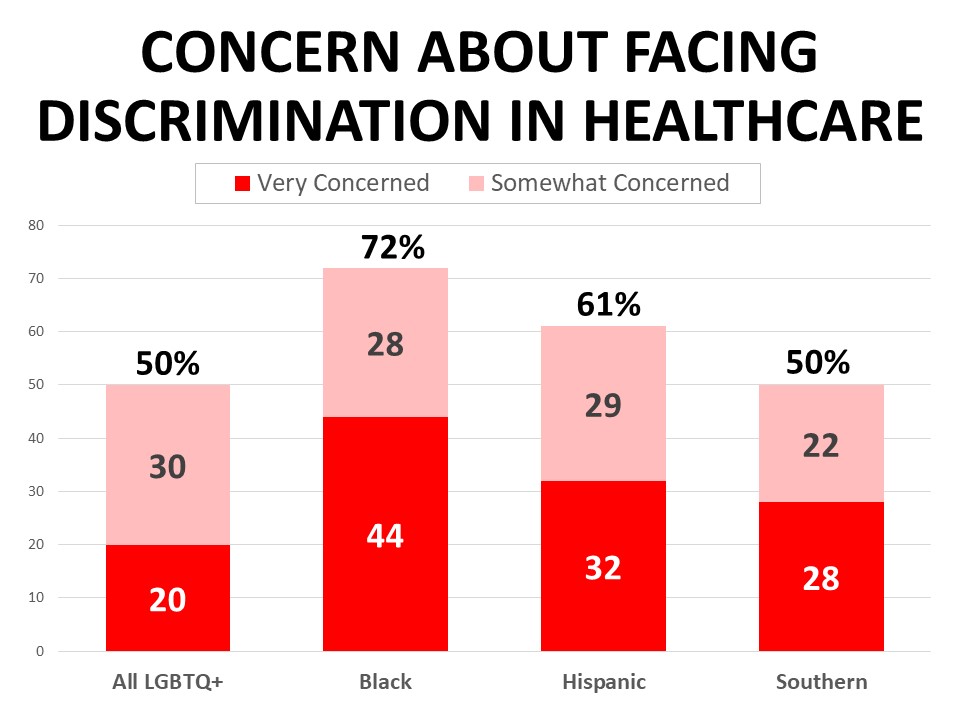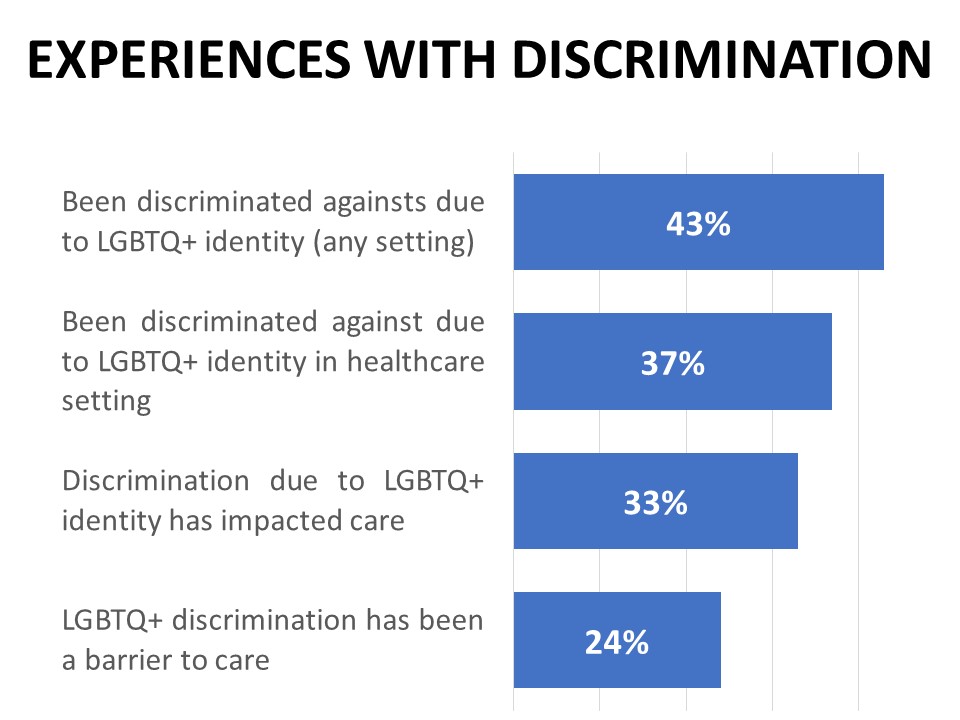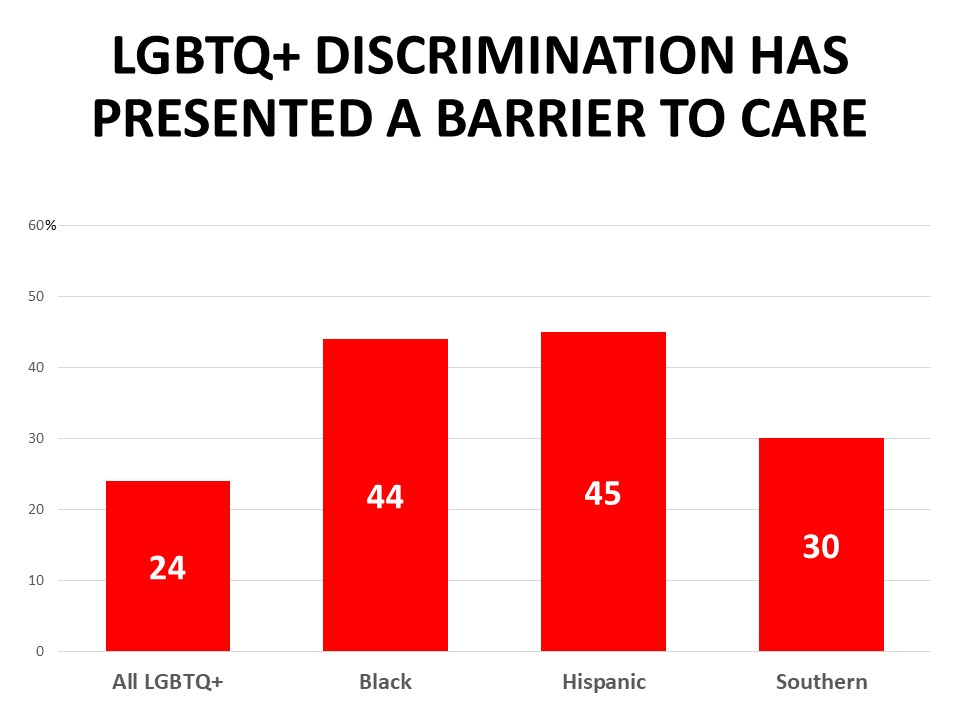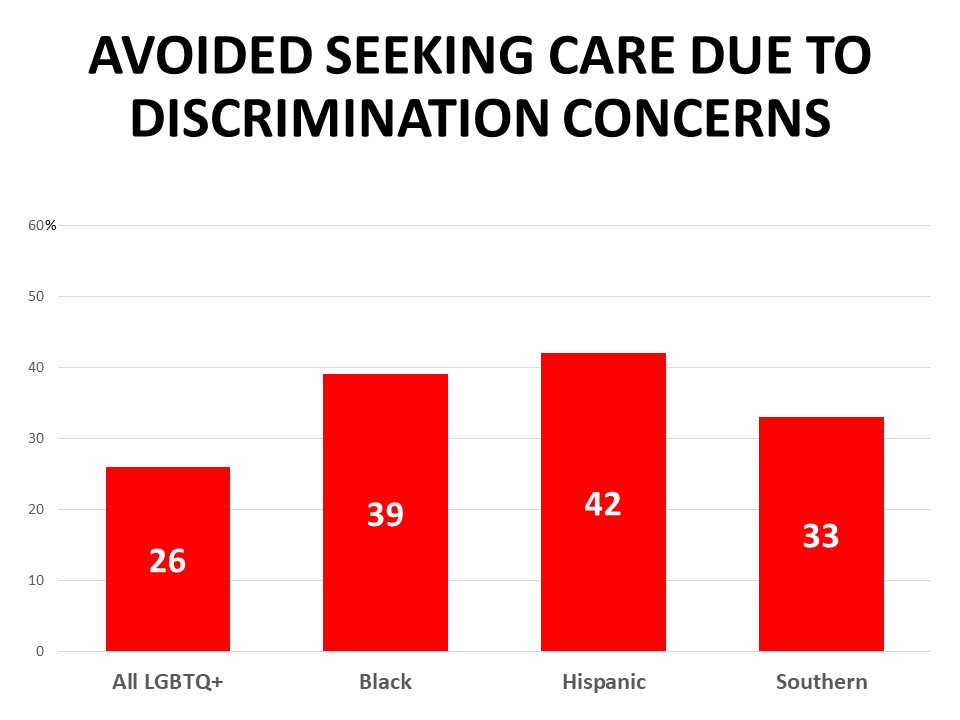Medicaid Funding Caps are a Barrier to Care for Cancer Patients & Survivors
ACS CAN opposes per capita caps, block grants, and other capped funding structures for the Medicaid program, as they endanger access to care.
The American Cancer Society Cancer Action Network (ACS CAN) empowers advocates across the country to make their voices heard and influence evidence-based public policy change, as well as legislative and regulatory solutions that will reduce the cancer burden. As part of this effort, ACS CAN deploys surveys to better understand cancer patient and survivor experiences and perspectives, through our Survivor Views research panel. The panel is a group of cancer patients and survivors who respond to regular surveys and provide important insights to support ACS CAN’s advocacy work at all levels of government.
Fielded May 19-23, 2023, our latest survey explores the views and experiences of LGBTQ+ cancer patients and survivors. The web-based survey was conducted among 200 LGBTQ+ patients and survivors nationwide who have been diagnosed with or treated for cancer in the last seven years.
Half of LGBTQ+ cancer patients and survivors surveyed are very or somewhat concerned they may face discrimination in a health care setting due to their sexual orientation or gender identity, and one-in-five are very concerned. Just 19% are not concerned at all about facing discrimination.

Non-White LGBTQ+ cancer patients and survivors are especially concerned about facing discrimination due to their sexual orientation or gender identity, including 72% of Black and 61% of Hispanic respondents. The intensity of concern is also higher in among residents in Southern states, where 28% are very concerned about facing discrimination in a health care setting compared to 20% nationwide. Concern about facing discrimination due to LGBTQ+ identity is persistent across income and education levels and regardless of marital or partnership status.
More than one-third (37%) have faced some form of discrimination in a health care setting, including feeling they were not taken seriously, not treated with respect, or feeling they were treated differently due to their sexual orientation or gender identity. Those most likely to report experiencing discrimination based on their LGBTQ+ identity include Hispanic patients (71%), Black patients (44%) and those residing in the South (42%).

Three-quarters of those who report experiencing discrimination believe it impacted the care they received. Over one-quarter (28%) feel they were treated with less care or compassion as a result, and 14% feel they weren’t believed, heard, or listened to. Nearly one-in-ten (9%) feel their condition wasn’t taken as seriously and 8% say it took longer to get diagnosed or to get help with their condition because of the discrimination.
Over one-third (35%) say they have faced difficulty getting support services outside of their providers office due to discrimination. One-quarter (25%) have faced challenges regarding who is able to make medical decisions on their behalf and 19% have faced challenges accessing a partner’s health care coverage related to their sexual orientation or gender identity.
Experiences with discrimination in health care can be quite painful and even result in patients missing appointments or not seeking care due to discomfort with the discrimination they have faced:
“The nurses and doctor treated me differently like they didn't want to be around me or were afraid to touch me.”
“Certain employees were very cold toward me. They mocked me and talked about me as if I wasn't there and didn't matter. I developed deep depression and almost stopped my therapy.”
“After being poorly treated, which stressed and saddened me, I did not schedule any more appointments at that facility, resulting in needing to research and find a different medical facility and delaying my treatment several weeks.”
“Its dangerous when [your doctor] has a bias against you.”
Twenty-four percent report that their sexuality or gender identification has been a barrier to getting health care or has caused delays in getting needed care. Residents of the South (30%) and Midwest (25%) are more likely to report facing a barrier to care due to their orientation or gender identity, while those in the Northeast (18%) and West (14%) are less likely.

Intersectionality with race or ethnicity is again even more highly correlated with encountering a barrier due to orientation or gender identity. Non-White LGBTQ+ patients (36%) are more likely to have experienced this discrimination as a barrier than White LGBTQ+ patients (21%), with Black (44%) and Hispanic (45%) patients most likely to have experienced their LGBTQ+ identity as a barrier to receiving health care.
Nearly half (48%) have chosen not to disclose their sexual orientation or gender identity in a health care setting due to concerns about negative impacts on their care, and 26% have avoided seeking care for a health concern because of concerns about discrimination. Hispanic (42%) and Black (39%) patients are particularly likely to report avoiding seeking care due to concerns about anti-LGBTQ+ discrimination.

Thirty-four percent have sought care from a specific provider, such as traveling to a specific state or seeking out an LGBTQ+-friendly provider, in order to see a provider who may be more accepting or provide better care to patients of their sexual orientation or gender identity.
When asked their biggest concerns about their ability to receive health care related to their gender identity or sexual orientation, 43% mentioned several aspects of discrimination. These include being treated differently/unfairly (22%), being judged (6%), not being taken seriously (3%), being treated as a risk such as likely to have HIV/AIDS (2%), and being harassed or assaulted (2%). Another 27% mention aspects of discrimination or bias impacting their care, such as difficulty finding an understanding or compassionate provider (12%), not receiving proper treatment due to bias, and issues with a partner access care (5%) and staying healthy in general (3%). Sixteen percent mention the political climate, including fear of traveling to certain states (7%), laws restricting their rights (6%), and reproductive rights (3%).

Fifty-eight percent are concerned about the political climate in their state or around the country impacting their ability to get healthcare based on their sexual orientation or gender identity, with 27% very concerned, while just 19% are not at all concerned. Forty-nine percent are concerned that a provider may feel it is too risky to treat them due to anti-LGBTQ+ laws passed in the state where they practice, with 18% very concerned.

When asked what needs to change in the health care system to make it more accommodating to their needs, 36% mentioned less discrimination, more compassion, and more equal treatment. Twelve percent mentioned lowering costs while 7% mentioned improving diversity and representation among providers or improving their ability to identify LGBTQ+-friendly providers. Five percent mentioned making health care less political and leaving decisions about care in the hands of doctors rather than lawmakers, while 4% mentioned improving access for all.
“I don’t want a politician managing my healthcare. I want a doctor.”
Most however have found a provider with whom they feel comfortable raising questions or concerns related to their LGBTQ+ identity (69%). Additionally, 88% are comfortable openly communicating their concerns without fear of judgement or discrimination, however 44% say their comfort only extends to some, not all, providers.
ACS CAN’s Survivor Views research initiative was designed to support the organization’s efforts to end suffering and death from cancer through public policy advocacy. Data provided by cancer patients and survivors as part of this project allows for a greater understanding of their experiences and opinions on cancer-related issues and gives voice to cancer patients and survivors in the shaping and advocating of public policies that help prevent, detect, and treat cancer and promote a more positive quality of life for those impacted. This survey was conducted between May 19-23, 2023 among a total of 200 respondents who meet the following criteria:
Similar to available national statistics, 4% of respondents identity as transgender or gender non-binary, while 99% identify with a sexual orientation other than straight/heterosexual. The regional analysis identifying statistically significant differences among respondents in the Southern United States includes residents of the following: Alabama, Arkansas, Delaware, Florida, Georgia, Kentucky, Louisiana, Maryland, Mississippi, North Carolina, Oklahoma, South Carolina, Tennessee, Texas, Virginia, Washington, DC, and West Virginia.
About ACS CAN
The American Cancer Society Cancer Action Network (ACS CAN) advocates for evidence-based public policies to reduce the cancer burden for everyone. We engage our volunteers across the country to make their voices heard by policymakers at every level of government. We believe everyone should have a fair and just opportunity to prevent, detect, treat, and survive cancer. Since 2001, as the American Cancer Society’s nonprofit, nonpartisan advocacy affiliate, ACS CAN has successfully advocated for billions of dollars in cancer research funding, expanded access to quality affordable health care, and advanced proven tobacco control measures. We stand with our volunteers, working to make cancer a top priority for policymakers in cities, states and our nation’s capital. Join the fight by visiting www.fightcancer.org.